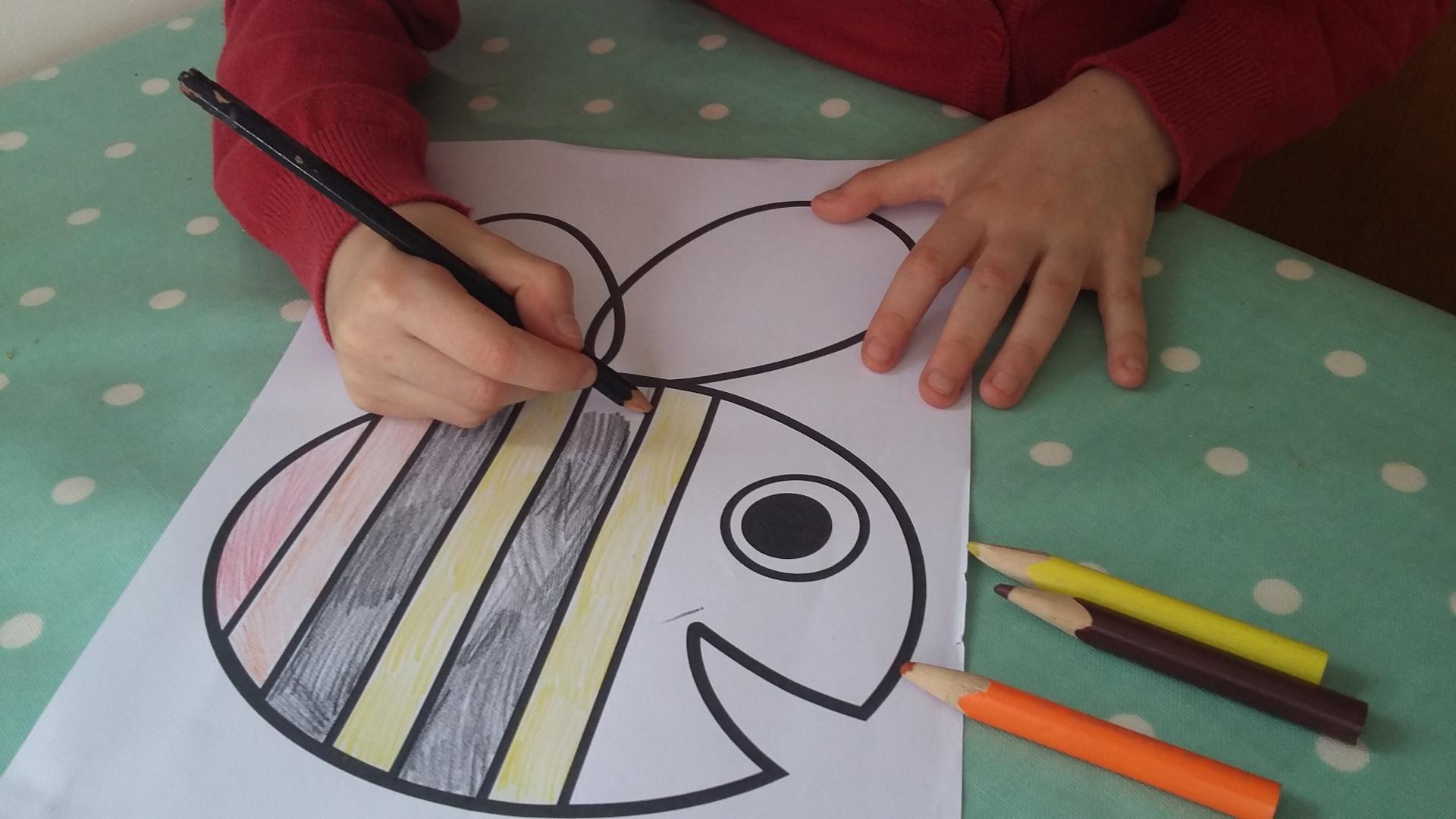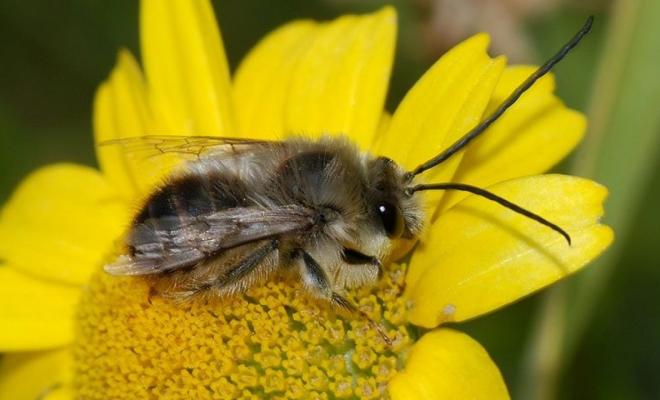Paul de Zylva, Nature campaigner04 Nov 2019
Wales and England were the world’s first nations to devise comprehensive action plans to reverse the decline of their bees and other pollinating insects, thanks to Friends of the Earth’s Bee Cause campaign.
On the fifth anniversary of the National Pollinator Strategy, I look back at the campaign and assess whether those plans are good enough to bring bees and other beneficial bugs back from the brink.
Why are bees important?
Putting bees out of business makes no sense. They pollinate many of the foods we need for a healthy diet and they also help nature function. But pollinators face the loss of their habitats on farms and in towns and daily exposure to pesticides in fields and gardens. Like us, they also face the growing effects of climate change.
In 2012, when the Bee Cause was launched, frequent reports about bee decline were causing increasing public concern about the plight of Britain’s bees. Good work was already underway to help honeybees, with campaigns by the Women’s Institutes and the British Beekeepers’ Association. Wild bees and other vital insects were being championed by the Bumblebee Conservation Trust and Buglife. But there didn’t seem to be any concerted action – which is where the Bee Cause stepped in.
What did the Bee Cause do?
The Bee Cause offered something new. It was the only campaign for all 260+ bee species – not just honeybees – as well as moths, hoverflies, beetles and other pollinators. And it addressed all causes of their decline.
Friends of the Earth’s campaign complemented the other groups’ work and helped boost public interest in bees and other pollinators, so that all activities gained more traction. We also worked with the UK’s top bee and pollinator scientists, and with MPs from all parties. They backed our call for a comprehensive national Bee Action Plan that brought together all issues and parties – farmers, conservation groups, scientists and others – for the first time.
Bee Cause highlights
The Bee Cause campaign successes include:
- World firsts – in response to our campaign, Wales led with its Pollinator Action Plan in summer 2013 and the UK government launched the National Pollinator Strategy for England in November 2014. Plans for the whole of Ireland came in 2015 and for Scotland in 2017.
- UK-wide – as a result, action plans exist for each UK nation and although each plan has its weaknesses, it’s important that they’re in place.
- All bees – until our campaign, the government’s work on bees was mostly about managed honeybees, and largely ignored the UK’s 260+ wild bumble and solitary bees, let alone other vital pollinators such as beetles and moths.
- Bee health – the campaign persuaded ministers to back a national project to monitor the state of bees and other insects. Gathering better data on different species, their location, population and condition is essential to inform good decisions and actions.
- Pesticides – our work on the pesticides issue completely changed the government’s stance on bee-harming neonicotinoid pesticides, moving from denying they were a problem to backing restrictions on their use.
- Science – we also helped raise the profile of researchers working to improve knowledge about the causes of bee decline and to inform what governments, farmers, businesses and communities can do.
Are the plans any good?
Let’s say the jury is out. There have been gains, but there are also weaknesses in the national plans and there are concerns whether standards can be maintained post-Brexit.
The Welsh plan aims to make Wales the world’s most pollinator-friendly country. It’s action-based and is making good progress, including with schools, businesses and local councils securing “Bee Friendly” status if they take sustained action for pollinators.
The England plan has 5 actions and expert advice for anyone to help pollinators. Bees’ Needs week in summer promotes and recognises action by farmers, schools, communities and businesses. But 5 years into the plan, the government has relied too much on Bees’ Needs week, when bees and pollinators need help all year round. It’s also let the plan’s unique partnership of civil society, scientific and business groups flounder. As a result, the England plan has not been taken up by nearly enough farmers, landowners, businesses and councils after 5 years. It also remains dangerously weak on how to protect pollinators from climate change and pesticides.
Pesticide use in the UK is rising and farmers are not being helped enough to find other ways to produce and protect crops without first reaching for the bug-gun.
The English plan urgently needs updating and proper sustained action, to shift from the drift that’s been allowed since its welcome launch in November 2014.
We can and must be the generation to save Britain’s bees and pollinators. Some species are stable, but others are in decline or only just hanging on. They all need the government, businesses and communities to step up, because fine words and plans on paper are of little use if bees are going hungry and still being exposed to a cocktail of chemicals.
Admirably, the UK government says it will be the first to leave nature in a better state than when it entered office in 2010. Its 25 Year Environment Plan commits to restoring nature within a generation. But can bees wait that long?
Bees in Brexit Britain
The government says it will maintain or exceed current EU environmental standards, but it’s also under pressure from powerful industrial agriculture interests, including pesticides firms, to relax controls on pesticides. Brexit Britain may become a hostile environment for bees and pollinators if the UK weakens the way pesticides are tested, regulated and used.
On the plus side, in 2020 the government will draw up a new nature strategy in response to the dire state of the UK’s nature, which it’s been warned about for years and has largely ignored. The improved bee and pollinator action plans must be central to that new strategy.
The government is also to create a national Nature Recovery Network, with 500,000 hectares of wildlife-rich habitat to link up existing wildlife places. Will this be enough to bring bees, other pollinators and nature back? We need thriving nature everywhere, not just in zoned areas outside of which developers and landowners can do their worst.
The EU Common Agricultural Policy will be replaced by a new Environmental Land Management scheme, with farmers and landowners awarded public funds if they restore habitats and improve conditions for wildlife. It is vital to get the scheme working well if bees and pollinators are to start thriving across farmland and the countryside.
The government says its “landmark” Environment Bill will “put nature and climate at the heart of government decision making” and launching the Bill in parliament, Environment Secretary Theresa Villiers told MPs:
...there can be few things more important for a Member of this House than to be able to say that in their time in elected office they played a part in conserving the stunning landscapes, wildlife and natural habitats of this great country.
The Bee Cause showed the huge public and political desire and demand to end the plight of bees and pollinators but the action plans we secured now need renewed government commitment. We’ll be watching new MPs and ministers – and so will the birds, the butterflies and the bees.



